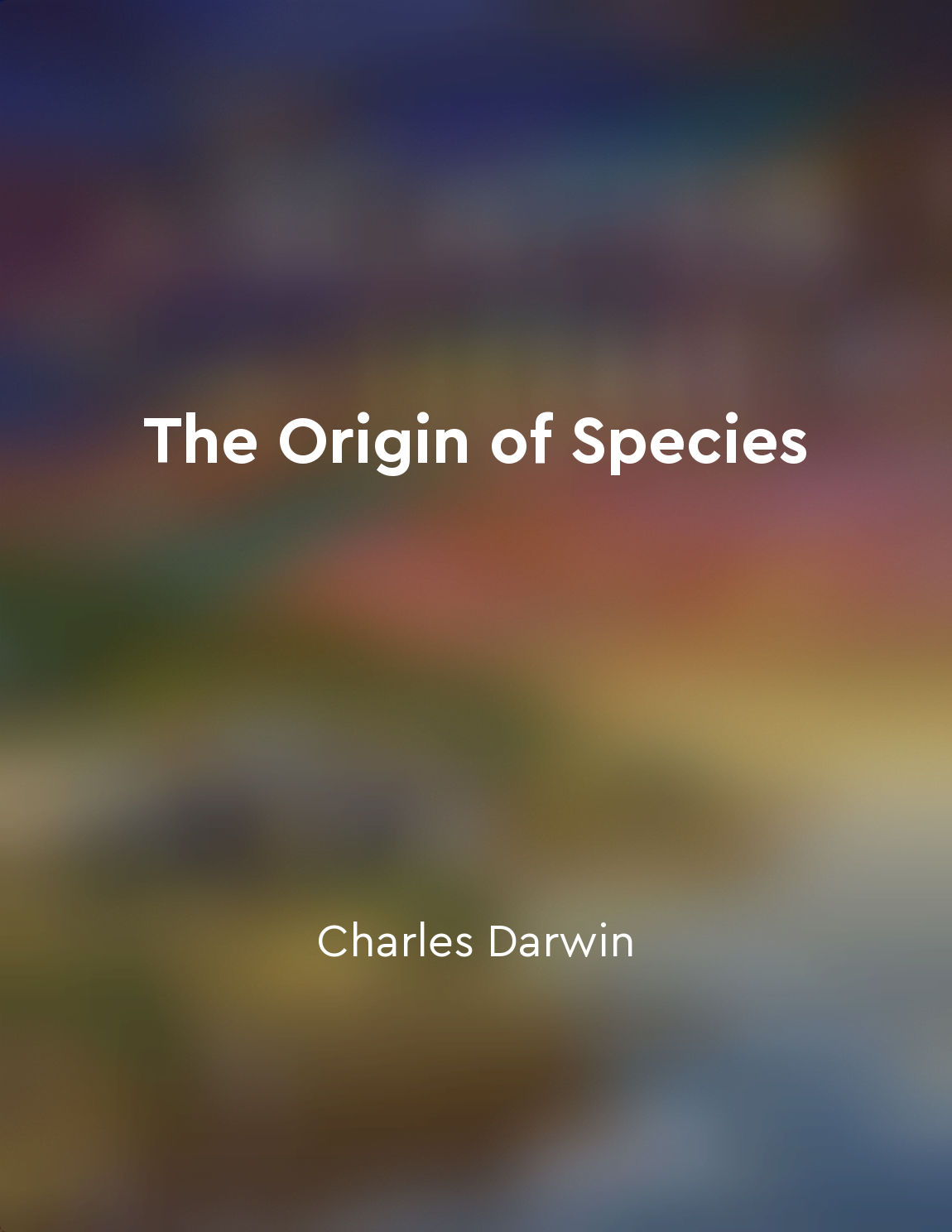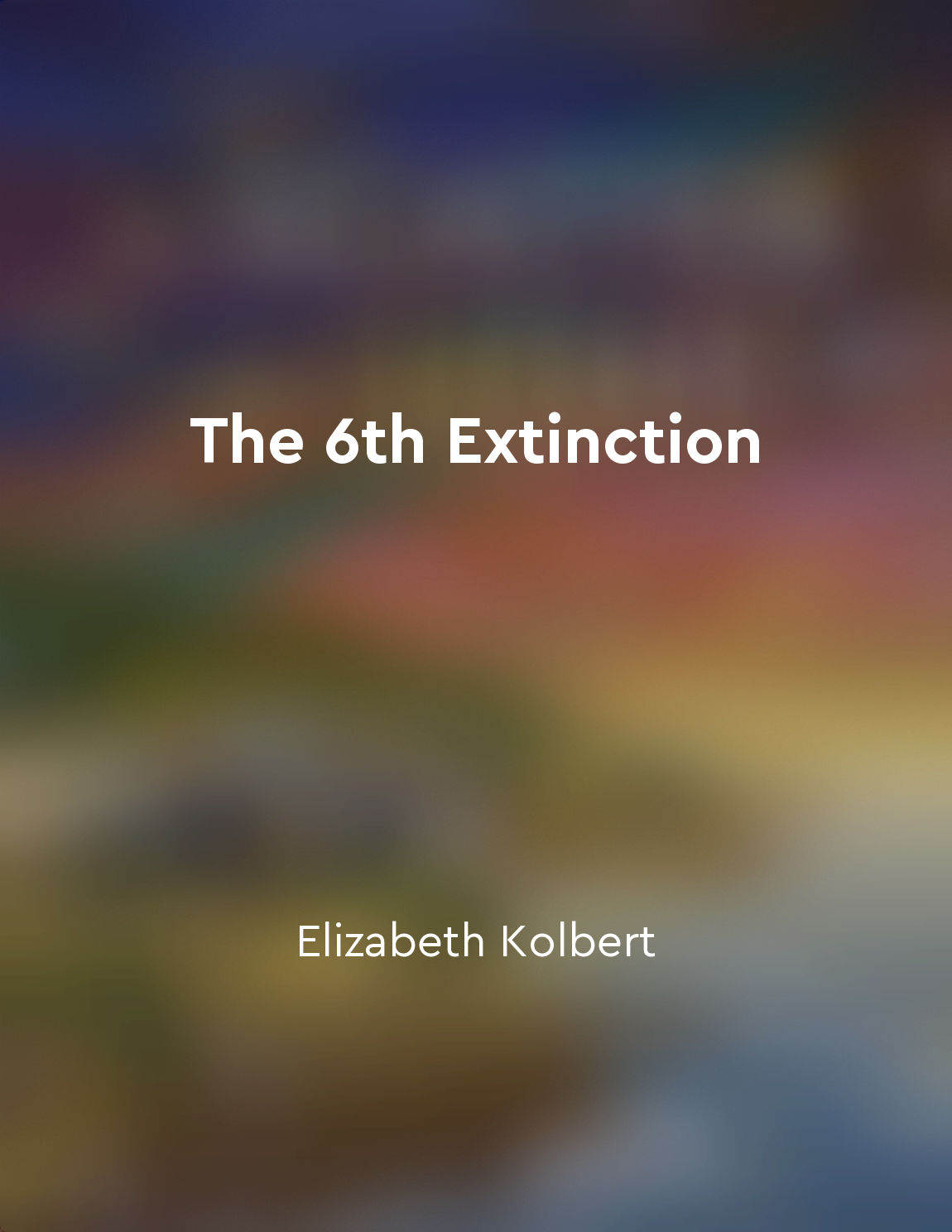Audio available in app
Extinction is a loss not just for the species themselves, but for humanity as a whole from "summary" of The 6th Extinction by Elizabeth Kolbert
The idea that extinction is a loss not just for the species themselves, but for humanity as a whole, is a central theme in 'The 6th Extinction'. This concept challenges our traditional view of extinction as a natural process that has little impact on us. In reality, the disappearance of a species can have far-reaching consequences that extend beyond just that particular organism. When a species goes extinct, it disrupts the delicate balance of ecosystems, leading to a ripple effect that can destabilize entire habitats. As Elizabeth Kolbert explains, the web of life is incredibly interconnected, with each species playing a unique role in maintaining the health and functioning of the ecosystem. When one species disappears, it can trigger a chain reaction that affects many others. Moreover, the loss of biodiversity can have serious implications for human well-being. Many of the services that nature provides us, such as clean air, water, and food, are dependent on the diversity of life on Earth. When species go extinct, we lose valuable resources and potential sources of medicine, food, and other essentials. In addition, the disappearance of species can have cultural and emotional impacts on humanity. Countless cultures around the world have deep connections to the plants and animals that share their environments. When these species vanish, they take with them a piece of our shared heritage and identity. Furthermore, the loss of biodiversity can diminish our sense of wonder and awe at the natural world, depriving us of the beauty and diversity that enrich our lives.- The concept that extinction is a loss not just for the species themselves, but for humanity as a whole, challenges us to rethink our relationship with the natural world. It reminds us that we are not separate from nature, but deeply interconnected with all living things. As we witness the ongoing extinction crisis, it is crucial that we recognize the value of biodiversity and work to protect and preserve the richness of life on Earth.
Similar Posts
Invasive species struggle to survive
In the absence of humans, the delicate balance of nature is left undisturbed. Invasive species, however, find themselves in a p...
Cultural institutions help preserve heritage and identity
Cultural institutions are essential in maintaining a society's heritage and identity. They play a crucial role in safeguarding ...
Collaboration is key to success
In our rapidly changing world, the ability to collaborate effectively is more crucial than ever before. The challenges we face ...

Scientific knowledge empowers humanity
Scientific knowledge has been a key factor in empowering humanity throughout history. It has enabled us to understand the world...

Natural selection acts on existing variations
Natural selection, as I have explained earlier, is the process by which certain traits become more common in a population over ...
Adapting to changing conditions is essential for survival
Living organisms have an undeniable ability to adapt to changing conditions. This adaptability is not just a remarkable feature...
Sustainable development requires balancing economic and environmental concerns
Sustainable development, a concept that has gained increasing importance in recent years, essentially involves meeting the need...

The interconnectedness of species makes extinction a complex issue
The intricate web of life on Earth is a delicate balance that has evolved over millions of years. Each species, no matter how b...

(Note: The above key ideas have been generated based on the content and themes of the book "The Sixth Extinction" by Elizabeth Kolbert)
The concept of the sixth extinction revolves around the idea that Earth is currently experiencing a mass extinction event, caus...

